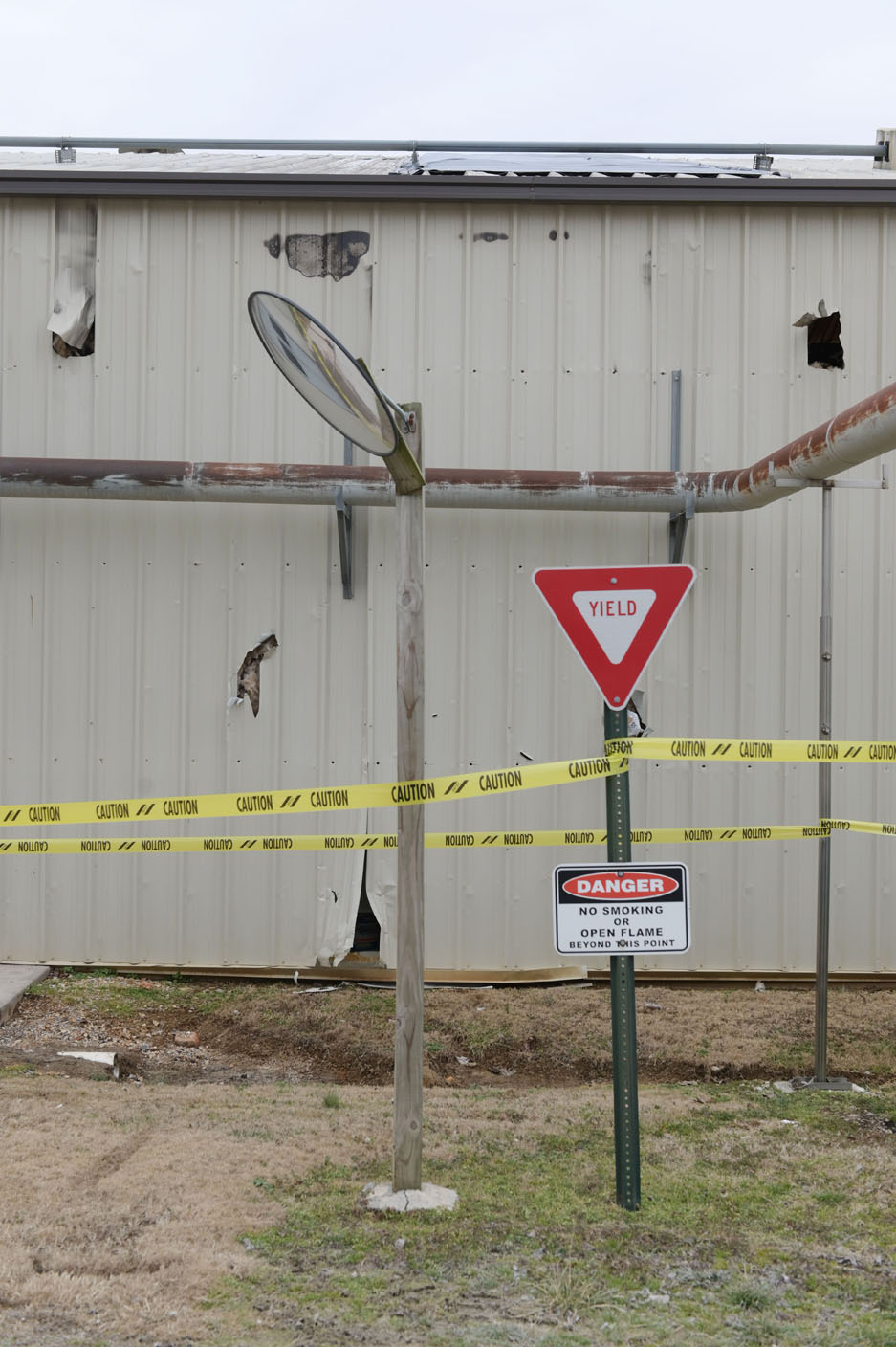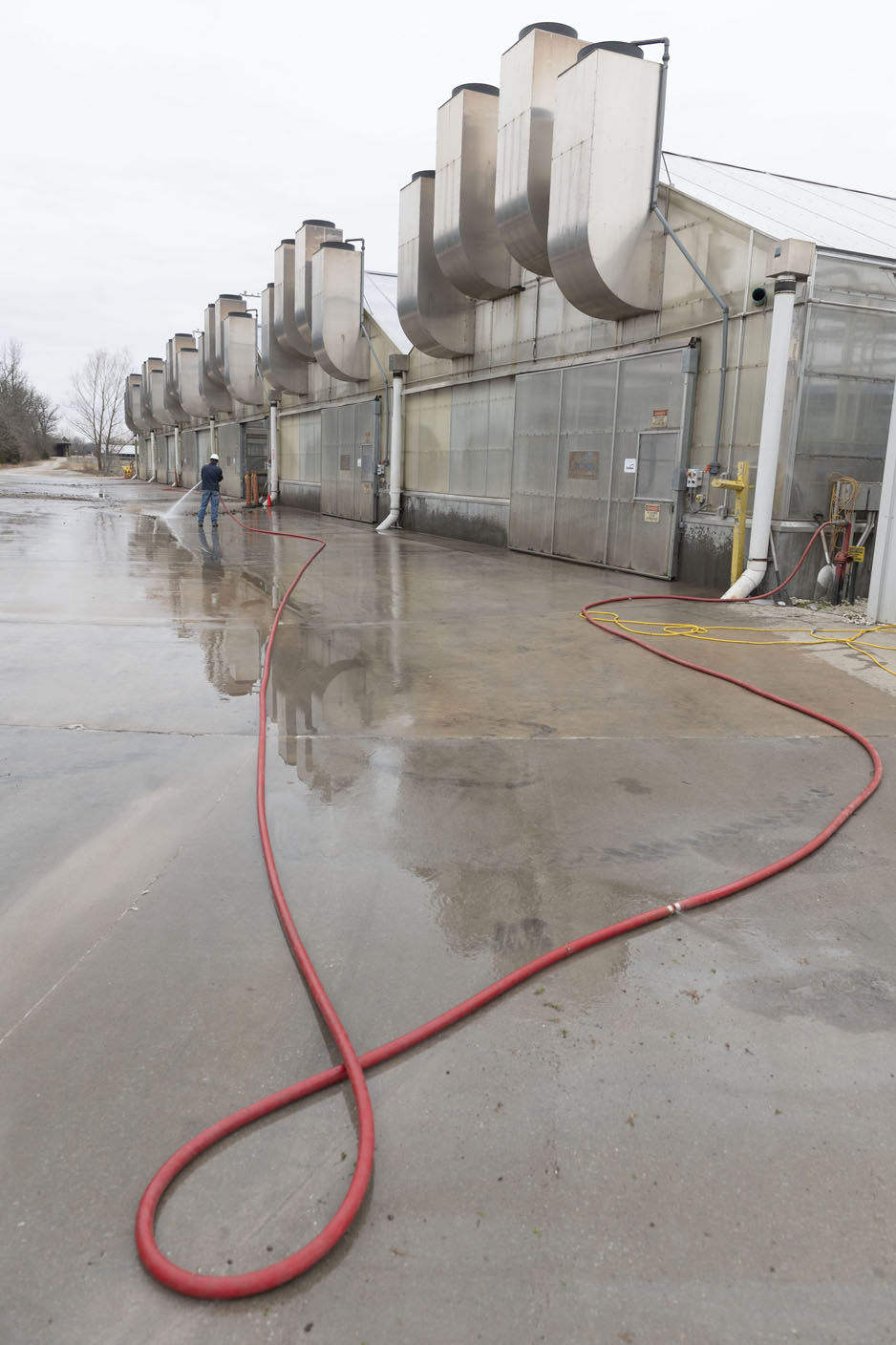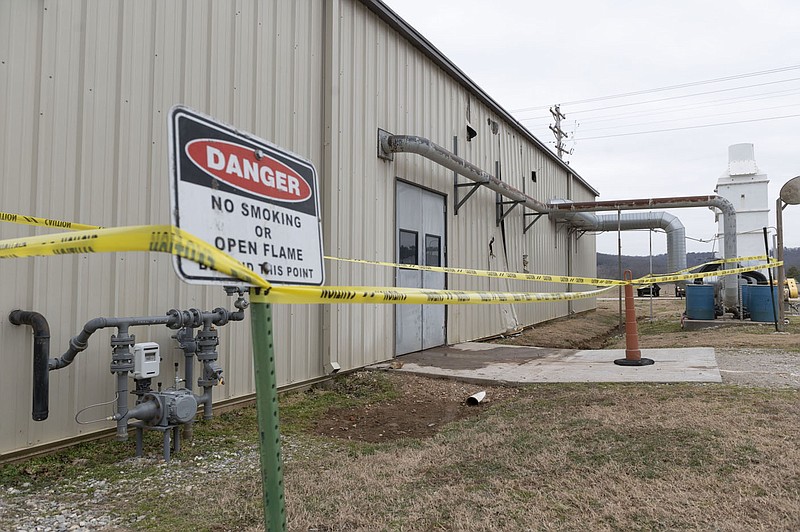FAYETTEVILLE -- The city is hauling biosolids to the landfill until it can get an alternative method in place after its dryer exploded in December.
The dryer prepares the city's biosolids for use as fertilizer. The city expects to spend about $350,000 in additional landfill fees over the next four to five months until it gets a new dryer system installed. An agreement is in place with Griffin Residuals in Kentucky to install an alternative drying system.
The only cost associated with the alternative system would be a $30 to $50 fee per ton of materials processed, a little less than the cost to haul to the landfill. The new system would be installed in the same place as the old one, at the city's biosolids management site.
The city would pay for any modifications to the existing building needed to house the new equipment. However, Griffin would be responsible for installing and operating the equipment until the city's contracted staff is trained to take over the operation.
The city contracts with local firm Jacobs Engineering to manage its wastewater facilities. Griffin also would be responsible for maintaining the equipment and would pay for the utilities used in the drying operation.
The items associated with the additional landfill fees and agreement with Griffin Residuals are on the Fayetteville City Council's consent agenda for Tuesday, meaning it will pass without discussion unless a council member objects.
UNFORESEEN CIRCUMSTANCES
Normally, the city uses a solar house to partially dry the solids before going to the dryer at the management site, said Tim Nyander, the city's utilities director. The dryer gets rid of the pathogenic materials, and the city stores the solids before selling it to farmers to use as fertilizer. The city twice a year sells the material for $20 a ton.
The city won't be able to store the material to bid out as fertilizer until Griffin's system is installed and operating, Nyander said. The new technology involves a continuous feed of sludge that it can dry in 20 minutes, as opposed to the batch treatment the city used before, he said.
The old dryer had an explosion around a bearing housing in September, but the city was able to fix it and monitor it with heat sensors and cameras, Nyander said. The second explosion in December was more damaging, he said. No employees were injured.
"The dryer's old, and we've done a lot of repair on it," Nyander said. "But the explosion was unforeseen. Even the second time, with all the thermal sensors and the camera, there was no indication it was about to happen, either."
The manufacturer is analyzing the costs to repair or replace the old dryer. The city will use that information and evaluate the new equipment for about three years to weigh which option is the best permanent solution, Nyander said. If the city decides the Griffin equipment is the way to go, it could buy the equipment, likely for about $2 million, he said. The City Council would have to decide whether to make the purchase.
A biosolids master plan the city did with a consultant estimated new sludge technology could cost around $30 million, so the Griffin equipment could present a less costly option to do the same job, Nyander said.
WASTE NOT
Other Northwest Arkansas cities have a process of handling biosolids that's similar to Fayetteville's. Springdale, Rogers and Bentonville all use various drying processes that result in the solids being turned into nutrient material that can be hauled off and put back into the earth. Fort Smith takes its biosolids to the landfill.
Turning biosolids into fertilizer is a popular method nationally to deal with the materials, said Maile Lono-Batura, director of sustainable biosolids programs for the Water Environment Federation, a national nonprofit member organization dealing with water and wastewater quality.
"The highest and best use would be to put it back into the ground, because that's essentially where it came from. It's nutrients that came from us, that we took from the earth when we ate them," she said. "We're just cycling it through to become nutrients again and safely apply to land to grow more food or build soil."
However, sometimes equipment breaks, and cities are left to find alternative methods to deal with their biosolids, Lono-Batura said. Landfills are a popular backup plan, although they are becoming less common as a primary method, she said.
Some states, such as Georgia and Nevada, primarily take their biosolids to the landfill, according to the National Biosolids Data Project. Others, such as Oregon and California, primarily turn the materials over for agricultural use. Incineration is another method. Missouri and Minnesota primarily burn their biosolids. Some states, such as Florida, distribute their processed biosolids to other parts of the country that need the nutrient-rich material.
How a city or state deals with its biosolids depends on location, resources available and the desire of residents, Lono-Batura said.
"There are hiccups in technology, and you have to find a way to keep it going," she said. "The flushes don't stop."
On the web
To explore the different ways states handle biosolids, go to:
https://www.biosolidsdata.org/state-summaries
 The building where the biosolids dryer for the city of Fayetteville exploded is seen Thursday, Jan. 27, 2022, with holes and damage at the biosolids management site building on Wyman Road. The cityís biosolids dryer had a catastrophic failure in December, prompting the city to temporarily haul the materials to the landfill until an alternative drying method is installed. (NWA Democrat-Gazette/Spencer Tirey)
The building where the biosolids dryer for the city of Fayetteville exploded is seen Thursday, Jan. 27, 2022, with holes and damage at the biosolids management site building on Wyman Road. The cityís biosolids dryer had a catastrophic failure in December, prompting the city to temporarily haul the materials to the landfill until an alternative drying method is installed. (NWA Democrat-Gazette/Spencer Tirey) The building where the biosolids dryer for the city of Fayetteville exploded is seen Thursday, Jan. 27, 2022, with holes and damage at the biosolids management site building on Wyman Road. The cityís biosolids dryer had a catastrophic failure in December, prompting the city to temporarily haul the materials to the landfill until an alternative drying method is installed. (NWA Democrat-Gazette/Spencer Tirey)
The building where the biosolids dryer for the city of Fayetteville exploded is seen Thursday, Jan. 27, 2022, with holes and damage at the biosolids management site building on Wyman Road. The cityís biosolids dryer had a catastrophic failure in December, prompting the city to temporarily haul the materials to the landfill until an alternative drying method is installed. (NWA Democrat-Gazette/Spencer Tirey) A Fayetteville employee with waste management cleans around a solar house used to partially dry the solid waste at the city's biosolids management site on Wyman Road. The cityís biosolids dryer had a catastrophic failure in December, prompting the city to temporarily haul the materials to the landfill until an alternative drying method is installed. (NWA Democrat-Gazette/Spencer Tirey)
A Fayetteville employee with waste management cleans around a solar house used to partially dry the solid waste at the city's biosolids management site on Wyman Road. The cityís biosolids dryer had a catastrophic failure in December, prompting the city to temporarily haul the materials to the landfill until an alternative drying method is installed. (NWA Democrat-Gazette/Spencer Tirey)